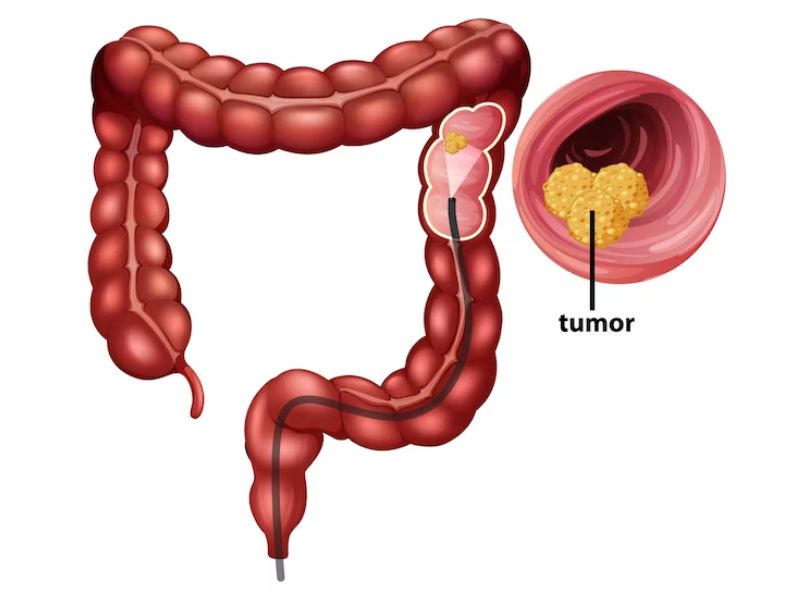
Colorectal Surgery In Hyderabad

What is Colorectal Surgery?
Colorectal surgery is the surgical treatment of conditions that affect the colon, rectum, and anus. The procedure involves the removal of part or all of the colon, rectum, or anus, depending on the extent and type of the condition being treated. Some of the most common conditions that are treated with colorectal surgery include:
- Rectal cancer
- Inflammatory bowel disease (IBD)
- Diverticulitis
- Hemorrhoids
- Anal fissures
- Fecal incontinence
- Rectal prolapse
Types of Colorectal Surgery:
There are several different types of colorectal surgery that are performed, each designed to treat specific conditions. Some of the most common types of colorectal surgery include:
- Colectomy: This procedure involves the removal of the entire colon or part of it. The procedure is typically performed to treat colon cancer, diverticular disease, or IBD.
- Proctectomy: This procedure involves the removal of the rectum. It is typically performed to treat rectal cancer or rectal prolapse.
- Anal surgery: This type of surgery is performed to treat conditions that affect the anus, such as hemorrhoids, anal fissures, or fecal incontinence.
- Laparoscopic colorectal surgery: This type of surgery is performed using minimally invasive techniques, meaning that the procedure is performed through small incisions, rather than a large open incision. This type of surgery is typically performed for conditions such as IBD, diverticulitis, or colon cancer.
Colorectal Surgery Procedures:
1). Open Surgery
Open surgery is a traditional approach to colorectal surgery that involves a large incision made in the abdomen. This procedure is typically performed under general anesthesia and may require a hospital stay of up to 7 days. Open surgery is typically used to treat more serious or complicated conditions such as colon cancer, rectal cancer, and diverticulitis.
2). Laparoscopic Surgery
Laparoscopic surgery is a minimally invasive approach to colorectal surgery that involves making several small incisions in the abdomen. This procedure is typically performed under general anesthesia and requires a much shorter hospital stay compared to open surgery. Laparoscopic surgery is used to treat a wide range of conditions including colon cancer, rectal cancer, and diverticulitis.
3). Transanal Endoscopic Microsurgery (TEM)
Transanal Endoscopic Microsurgery (TEM) is a minimally invasive approach to colorectal surgery that involves making a small incision in the rectum. This procedure is typically performed under general anesthesia and requires a much shorter hospital stay compared to open surgery. TEM is used to treat conditions such as rectal cancer, rectal polyps, and rectal prolapse.
Benefits of Colorectal Surgery:
- Improved Quality of Life:
Colorectal surgery can significantly improve the quality of life for patients who suffer from conditions such as colon cancer, rectal cancer, and diverticulitis. This type of surgery can help to relieve symptoms such as pain, discomfort, and inconvenience, allowing patients to live a more active and fulfilling life. - Increased Longevity:
Colorectal surgery can help to increase lifespan by removing cancerous growths from the colon, rectum, or anus. Early detection and treatment of colon and rectal cancer can significantly improve the chances of survival and increase longevity. - Enhanced Digestive Health:
Colorectal surgery can also improve digestive health by removing growths or abnormalities that are causing discomfort or pain. This can lead to improved digestion, reduced discomfort, and a better quality of life.
Preparing for Colorectal Surgery:
Before having colorectal surgery, your surgeon will perform a thorough evaluation to determine if you are a good candidate for the procedure. This evaluation may include a physical examination, medical history review, and imaging tests, such as a CT scan or colonoscopy.
Your surgeon will also provide you with instructions on how to prepare for your surgery, including what medications to take or stop taking, what to eat or avoid eating, and when to arrive at the hospital.
It is also important to inform your surgeon of any allergies or medical conditions you have, as well as any medications or supplements you are taking.
Recovering from Colorectal Surgery:
- After your colorectal surgery, you will be monitored in the hospital for several days. The length of your stay will depend on the extent of your surgery and your overall health.
- You may experience some discomfort, pain, or swelling after your surgery, but your surgeon will prescribe medications to help manage these symptoms.
- In most cases, you will be able to return to your normal activities within a few weeks after your surgery. Your surgeon will provide you with specific instructions on when you can resume your normal activities and any restrictions you may need to follow.
- It is also important to follow your surgeon’s instructions on wound care, dietary restrictions, and follow-up appointments to ensure the best possible outcome.
Frequently Asked Questions(FAQ)
What is colorectal surgery?
What conditions may require colorectal surgery?
What are the different types of colorectal surgeries?
How is colorectal surgery performed?
What are the benefits of minimally invasive colorectal surgery?
How long is the recovery period after colorectal surgery?
What are the potential risks and complications of colorectal surgery?
How can I prepare for colorectal surgery?
Success Stories
A true Master in his job!!! His expertise, care, calm approach towards patients & family - I just liked everything about Dr. Jagan Sir.
Meet Our Specialist
Dr. B Jagan Mohan Reddy is an experienced Gastroenterologist Surgeon in Hyderabad with an overall experience of 14 years.
Dr B Jagan Mohan Reddy
drjagangastrocare.com
MBBS,MS, M.CH Consultant Surgical Gastroenterologist, Laparoscopic, Bariatric, Advanced Robotic, Colorectal, Hepato Biliary & Pancreatic Surgeon

